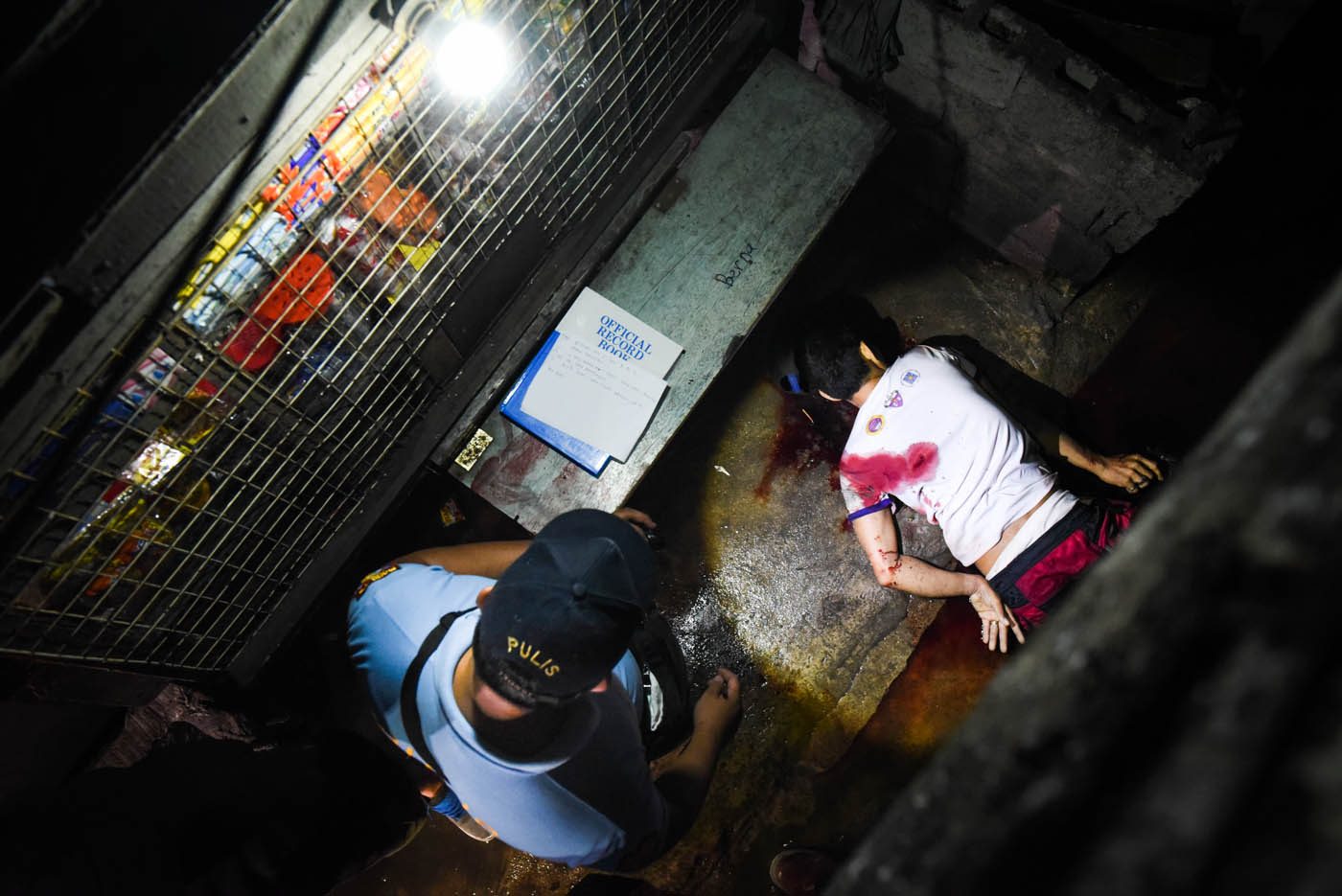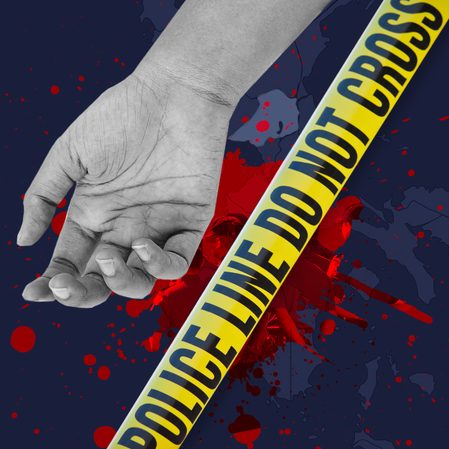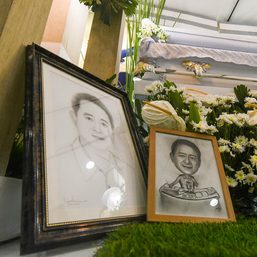SUMMARY
This is AI generated summarization, which may have errors. For context, always refer to the full article.

After years of keeping its drug war files secret, the Philippine National Police (PNP) is granting the Department of Justice access to the records of 61 investigations against policemen.
This represents less than 1% of the 7,884 deaths in official operations since 2016.
“The PNP will allow the DOJ access to records of 61 cases, involving hundreds of PNP personnel nationwide, where the PNP Internal Affairs Service (IAS) had found administrative/criminal liability on the part of law enforcement agents,” Guevarra told reporters on Monday, May 24.
One case could have several respondents, as operations involve several cops. Similarly, one operation could have several deaths.
This was Guevarra’s latest update 3 months after he delivered his damning report to the United Nations Human Rights Council (UN HRC), where he said that “in more than half of the records reviewed” of the 5,655 “nanlaban” (resisting arrest) deaths, policemen did not follow protocols.
The DOJ later revealed that only 328 cases “were made available for the review.“
Guevarra said the PNP’s 61 internal investigations are cases “where clear liability was established.” Yet, they still remain at the IAS level and not for criminal prosecution with the DOJ’s National Prosecution Service (NPS).
“That is what the DOJ will examine – which administrative cases may also be ripe for possible criminal investigation,” said Guevarra.
Guevarra also didn’t readily know what period was covered in the 61 cases. But these 61 cases, Guevarra said, were outside the drug war review.
Asked if there has been any case filed at all as a result of the review 3 months after, Guevarra said, “At this time, we don’t know that yet. but note that some criminal complaints have already been filed arising from those incidents by other interested parties, such as the families of the victims.”
Significant milestone or tokenism?
Guevarra said the PNP’s opening of records is “a very significant milestone in the government’s efforts to exact accountability.”
“What is significant right now is that the DOJ has been given free access, something that did not happen in previous years, thereby making our review rather difficult,” said Guevarra.
The opening of records was a result of a meeting between Guevarra and newly-appointed police chief General Guillermo Eleazar.
Carlos Conde, senior Philippine researcher of the international group Human Rights Watch, called this development “tokenism.”
“Even granting that the 61 cases can be considered as progress, the slow pace of the DOJ review and the evident unwillingness of the PNP to fully cooperate with the DOJ only underscore the tokenism that is at play ever since Guevarra made his promise to the UN Human Rights Council (HRC),” said Conde.
For human rights lawyers, this is a very slow pace. It was pointed out in Supreme Court petitions that a dead body should have prompted automatic prosecution because resisting arrest is a legal defense meant to be threshed out during trial.
But investigative and prosecutorial gaps have left thousands evading investigation, which is what the DOJ’s review meant to address, even if it was done only in June 2020 when there was tremendous pressure coming from both the UN HRC and the International Criminal Court (ICC).
The DOJ’s efforts have shielded the Duterte government from tighter scrutiny, while the ICC is expected to announce in the first half of 2020 if it has found basis to open the more formal phase of investigation where summons and arrest warrants can be issued.
“There’s no urgency at all in the government’s response, even as the drug war killings continue to occur on a regular basis. The council should now see what’s happening for what it is: an effort to mislead the international community about the horrific rights situation in the Philippines,” said Conde.
Guevarra said that there may be unaccounted cases filed, or those “already filed arising from those incidents by other interested parties, such as the families of the victims.”
“The biggest challenge to the criminal investigation/prosecution process is, and has always been, the willingness of witnesses to appear and testify,” said Guevarra.
Distrust
Distrust between families and government mechanisms are rooted in animosity toward the police, as the PNP is part of the drug war review. This has been the DOJ’s constant problem, even with a separate task force investigating political killings outside of the drug war.
Eleazar said working on trust is part of his roadmap.
“Laging kasama dun ‘yung ugnayan ng pulis natin sa mga barangay at the public as a whole, so we can get the trust and confidence of the people in their government, and that includes the PNP,” Eleazar said in an earlier Rappler Talk interview.
(Communication between the police and barangay and the public as a whole has always been included in the roadmap so we can get the trust and confidence of the people in their government, and that includes the PNP.)
Asked what prompted the PNP to finally grant access, Guevarra said he and Eleazar did not discuss it. “It all boils down to a question of political will – the will to do what is right,” said Guevarra.
“Instead of spinning this as moving the needle for accountability, [Guevarra] should convince his president to crack the whip on the police to force it to be more forthcoming and to be more serious about accountability,” said Conde.
According to an earlier study of the group IDEALS, or the Initiatives for Dialogue and Empowerment through Alternative Legal Services (IDEALS), only 32% of human rights violations in the drug war had an initial investigation conducted by the police. Of these, almost all, or 98%, did not go beyond the initial probe.
Up to now, the public – or even the families of victims – have not seen in full the partial report of the DOJ review. The PNP has a copy.
“We are always here to abide by the [higher offices’] directives, pinauubaya na natin po ‘yan sa kanila, particularly sa DOJ (we are leaving this to them, particularly the DOJ),” said Eleazar.
The DOJ, however, prefers to pass the buck to Duterte.
“The release of the report to the public is up to the President,” Justice Undersecretary Adrian Sugay earlier said.
Meanwhile, petitions seeking to declare Duterte’s war on drugs unconstitutional have been pending in the Supreme Court for nearly 4 years, stalled by rubbish files submitted by the police through the Office of the Solicitor General. – Rappler.com
Add a comment
How does this make you feel?









![[The Slingshot] Lito Patay’s 4 hours and 38 minutes of infamy](https://www.rappler.com/tachyon/2024/07/Lito-Patay-4-hours-infamy-July-19-2024.jpg?resize=257%2C257&crop=233px%2C0px%2C720px%2C720px)
There are no comments yet. Add your comment to start the conversation.